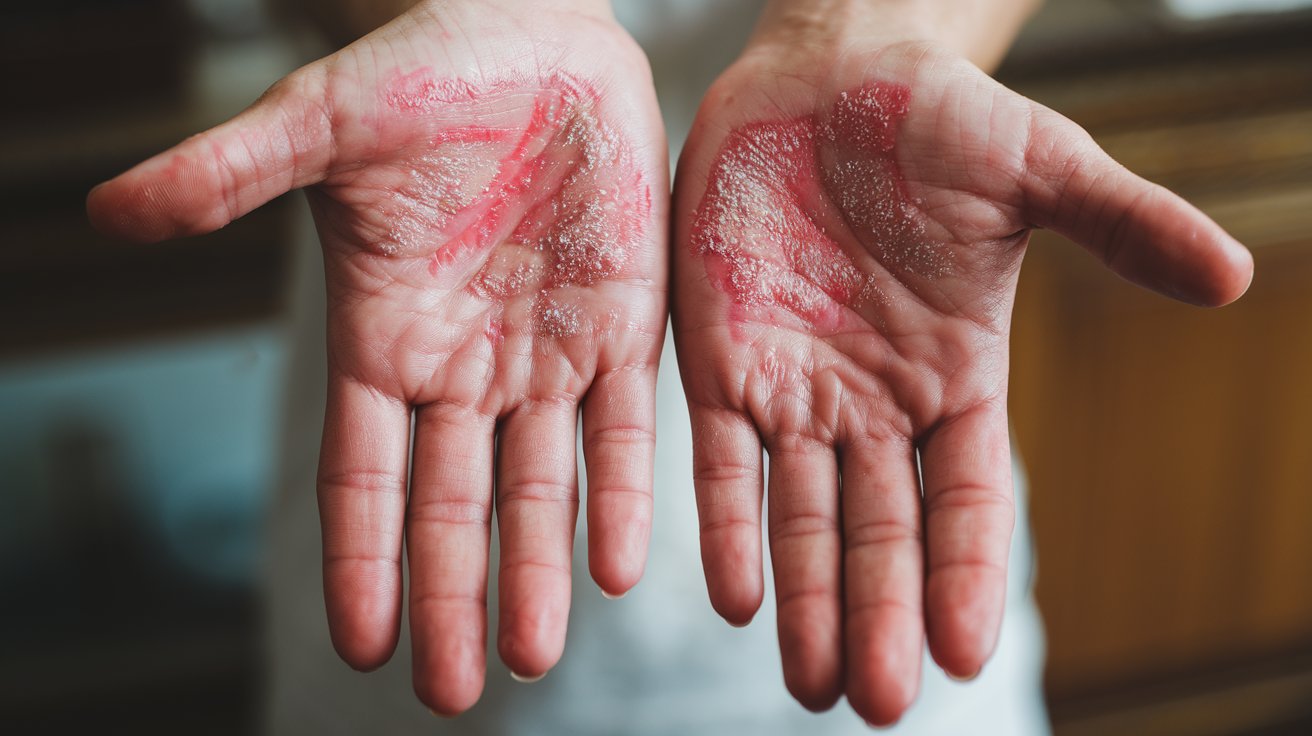Hi, I am Dr.Surej Subash, an Ayurveda physician (MD in Ayurveda) and senior consultant at Ayur Bethaniya.
The chronic autoimmune skin disorder, psoriasis, is characterised by red, scaly patches that can be extremely uncomfortable, causing pain, inflammation, and itching. Ayurveda provides a holistic approach that tackles the disease’s underlying cause, whereas traditional treatments concentrate on managing its symptoms. As an Ayurvedic physician, I have witnessed firsthand the profoundly positive effects that Ayurvedic treatments can have on psoriasis sufferers.
According to Ayurveda, psoriasis is more than just a skin condition. The buildup of toxins (Ama) in the skin is caused by an imbalance in the body’s doshas, particularly Vata and Kapha. The skin’s rapid cell turnover is brought on by this imbalance, which also impacts digestion, metabolism, and circulation. Based on my personal experience treating patients at Ayur Bethaniya, I will discuss Ayurvedic treatment for psoriasis in this article.
Understanding Psoriasis in Ayurveda
According to Ayurveda, achieving balance in doshas is crucial in the treatment of psoriasis. A disturbed Vata, which regulates movement and dryness, and Kapha, which regulates structure and lubrication, are the primary causes of psoriasis. Psoriasis is characterised by dry, scaly, and inflammatory patches that result from the accumulation of toxins caused by an imbalance in these doshas. While the exact cause is still not known, psoriasis is thought to be connected to both genetic and environmental factors. These factors include diet, injury, certain medications, smoking, and alcohol consumption, as well as mental stress or trauma.
Panchakarma: Ayurvedic Detoxification Therapy
In the Ayurvedic treatment of psoriasis, the first step is Panchakarma therapy, a purification procedure consisting of five stages. Panchakarma cleanses the body of toxins, allowing the doshas to return to balance. This procedure consists of:
Snehapanam : Medicated ghee or oils taken orally to reduce dryness and scaling and get the body ready for detoxification.
Abhyanga: An oil massage for the entire body that promotes circulation and aids in the movement of toxins to the intestines for removal.
Swedana : A medicated steam bath that helps the body release toxins through sweat by opening the pores.
Vamana and Virechana : Balances the Kapha and Pitta doshas by removing toxins from the upper body and digestive tract through controlled vomiting and purging.
Basti : Medicated enema therapy removes toxins from the lower intestine and is especially useful for balancing Vata dosha.
Herbal Remedies for Psoriasis
In my Ayurvedic practice, I rely on diverse herbal remedies that detoxify, reduce inflammation, and bring significant relief to psoriasis patients. Neem is renowned for its ability to purify blood and effectively alleviate scaling and itching caused by the condition. Turmeric is another effective treatment that reduces redness and inflammation. It can be used topically or internally due to its strong anti-inflammatory and antioxidant properties. Aloe vera is vital for treating skin conditions as it has a soothing effect and relieves external itching. Guggul, a resin, is highly beneficial for individuals with Vata imbalance as it reduces inflammation and improves skin health. But please note that don’t try these mentioned individual herbs without consulting a doctor.
Detoxification is an important aspect of the treatment, and Triphala, which is made from a blend of three fruits, plays a crucial role in achieving that.
Dietary Modifications
In Ayurvedic treatment for psoriasis, diet is very important. A healthy diet balances the doshas and promotes internal healing. I advise patients to stay away from foods that aggravate Pitta and Vata doshas, such as fried, spicy, and sour foods. To decrease inflammation, it is recommended to include hydrating and cooling foods such as leafy greens, cucumbers, and coconut water in the diet. Psoriasis patients are recommended to steer clear of dairy and gluten to help reduce symptoms. Consuming fresh fruits, vegetables, whole grains, and antioxidant-rich herbal teas is vital for digestion and preventing Ama buildup.
Lifestyle Recommendations
Since stress frequently causes flare-ups, stress management is essential to the treatment of psoriasis. Ayurveda utilises various techniques, such as yoga, pranayama, and meditation, to balance the doshas and promote mental tranquility. Regular physical activity is equally important as it enhances blood flow and the overall functioning of the body’s systems. Because sleep is when the body’s natural detoxification processes work best, I also advise my patients to keep a regular sleep schedule. To effectively manage chronic conditions like psoriasis, ayurvedic treatments such as Shirodhara, which involves applying warm oil to the forehead, are great for lowering stress and encouraging profound relaxation.
Read to know: Skin and Self - Navigating Life with Eczema
Conclusion
At Ayur Bethaniya, we offer comprehensive treatment for psoriasis and other chronic conditions by leveraging our deep Ayurvedic knowledge. Our hospital provides individualised care according to the particular dosha imbalance of each patient. Our team of experienced Ayurvedic doctors, therapists, and staff work together to ensure that each patient receives personalised care that addresses both their symptoms and the root cause of their condition. Ayur Bethaniya can help you on your path to wellness if you're looking for long-lasting, natural psoriasis relief.
Feel free to contact us for your queries.
Read to Know: Best Ayurvedic Tips For Natural Weight Loss

